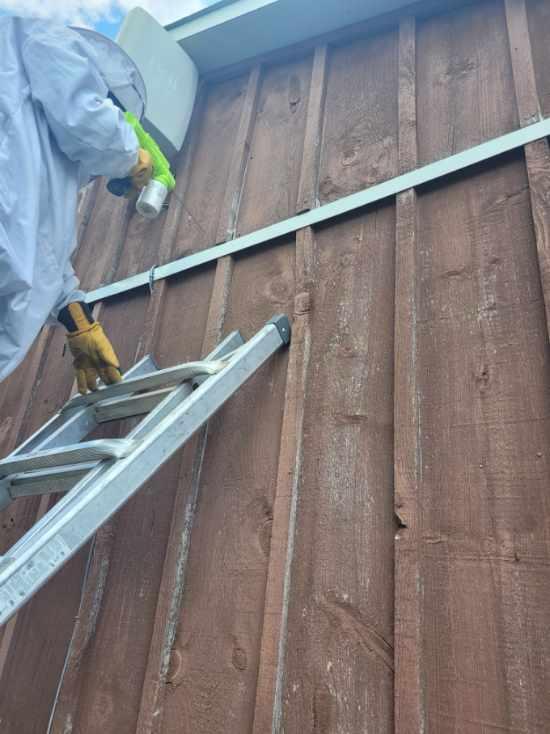Summer brings warmth, sunshine, and longer days, but it also creates the perfect conditions for pests to thrive. High humidity levels during hot months encourage insects and rodents to seek shelter in homes and commercial spaces. Moist environments attract pests because they provide water, food sources, and ideal breeding conditions. Without proper control, this can quickly escalate into infestations that damage property and risk health. Understanding the connection between humidity and pests is the first step toward protecting your environment. In this article, we’ll uncover why humidity attracts pests in summer and provide practical ways to keep them away.
Reasons Why Humidity Attracts Pests in Summer
Humidity establishes a climate that makes pests comfortable to thrive and multiply. Rodents, cockroaches and ants are insects that flourish in damp areas as they use water to control body temperature and to keep hydrated. When humidity increases inside the house, condensation accumulates on walls, pipes and basements and provides pests with a constant water source.
Also, food will rot quicker in high humidity, which will attract pests even more. These conditions facilitate fast pest reproduction, and the small problem can become a bigger one. Understanding why humidity attracts pests will enable property owners to take preventive measures to reduce moisture.
The Dangers of Pest Infestations in Humid Conditions
Humidity brings along with its pests that are more than a bother to deal with. Ants may compromise the foundation of a house resulting in expensive repair. Cockroaches and rodents also harbor dangerous bacteria that can get into food and onto surfaces and put your health at risk. The quality of air is also decreased due to excessive pest activity and spreading of allergens that may cause asthma and other respiratory issues.
In business premises, infestations may cost business reputations and lead to regulatory fines. The longer the humidity-related pest issues are left unattended the more likely the damage and cost. Acting early does not only protect your property but also the health of all the inhabitants or workers within the environment.
How to Control Humidity Indoors to Deter Pests?
One of the best ways of pest control London ON is by managing the humidity of the indoor environment. Start with a dehumidifier in rooms that are prone to dampness such as basements, storage rooms, and crawl spaces. Make sure that there is adequate ventilation by fitting exhaust fans in bathrooms and kitchens where vapours and moisture tend to accumulate.
Seal broken pipes, taps or roofs that can cause water to accumulate. Clean your gutters to avoid water stagnating close to your foundation. Monitor regularly condensation on windows or walls and correct the cause as soon as possible.
Reducing the humidity level not only makes your house more comfortable, but less attractive to pests. Changes in moisture control can be as simple as changing the risk of infestations and creating a healthier and safer environment to your family or business.
Outdoor Tips for Reducing Humidity and Pest Risk
Maintain Proper Drainage
One of the greatest causes of increased humidity levels and pest activity is standing water. Make sure that gutters are clear, downspouts divert water away, and your yard slopes away. Excess moisture can also be handled by installing a French drain or gravel filled trench.
Use Landscaping Strategically
Thick vegetation and overgrown bushes hold water and create a wet environment which is favorable to rodents, ants and other pests. Keep trim vegetation and a minimum of a few feet between plants and exterior walls. Use indigenous or drought-tolerant plants that are less water thirsty to maintain low humidity. This has been a major tip to follow for a quick pest control Sarnia.
Store Firewood and Materials Properly
Woodpiles, mulch, and other organic materials are moist and harbor insects. To keep firewood at least 20 feet away from your home and make sure it is not in contact with the ground. It is not a good idea to have mulch touching your foundation-use gravel or stone edges to keep pests away.
Improve Airflow Around Structures
Well-directed airflow will lessen humidity by evaporating moisture. Ensure that fences, sheds and decks are well-ventilated. Wherever feasible, lattice or screens should be installed under decks to encourage circulation and dis-courage nesting animals.
Monitor Outdoor Water Sources
Birdbaths, fountains, and pet water bowls will increase the humidity and draw pests. Frequently change water to prevent the breeding of mosquitoes as well as algae growth. Fountains can be fitted with small pumps or bubblers to ensure water is moving, a fact that discourages insects to lay eggs.
FAQs: Common Questions People Often Ask
- Why are pests more active when it is humid in summer?
Humidity causes wet conditions, which are essential to the survival and breeding of pests.
- Does humidity lead to ants’ infestation?
Yes. ant love wet wood, and thus, moist conditions are very favorable to them.
- What can I do to lower inside moisture?
Use dehumidifiers, seal leaks, and use exhaust fans in bathrooms and kitchens.
- Which are the most common pests during humid summers?
High humidity is favorable to mosquitoes, cockroaches, termites, ants, rodents, and silverfish.
- Do I require professional pest control on moisture problems?
Yes. Professionals can identify undetected issues of why humidity attractspests, offer remedies, and prevent a re-infestation.
Don’t Let Summer Humidity Invite Pests to Your Home
Keep summer humidity out of your home or business and away from pests. Our specialty at MVO Pest Control is to eradicate and prevent moisture-related pest problems. Professional exterminators offer professional inspections, personalized solutions and follow-up services to ensure your property is safe throughout the year. We have the right solution whether you are having a problem with termites, rodents or mosquitoes. Get your environment under control today, call our fast, reliable and professional service. Prevent pests before it is too late!



